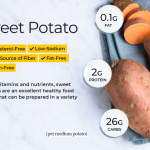Moses: Deliverance
I know I have said this before. But every time I read through the Bible, I hear something new. Something different in the Scriptures. For that, I am grateful. Today, we begin the stories of Moses. In hearing these stories, it is evident that God is working harder to get the people to be in relationship with him. As we walk through this journey with Moses, the Hebrew people, and God, I encourage you to find where you see yourself in the story. Let us pray.
The Story. It begins with creation. Then Abraham and Sarah-a promise of a great nation. Joseph-sold into slavery, yet God used this situation for good. Then Joseph, a great man of power, relocated his extended family to Egypt, where the Hebrew people prosper. After years of still not being in the promised land, they still are being fruitful and multiplying. Then something tragic happens. A new pharaoh comes on board in Egypt, a man who doesn?t have a connection or any knowledge of how amazing Joseph was to the Egyptian people, and this pharaoh begins to persecute the Hebrews and puts them into slavery. The people cry out, they wonder where God is, and so God finds an unlikely fellow?a Hebrew man who was placed in the water, saved by Pharaoh?s daughter, was raised as an Egyptian, eventually killed an Egyptian for how he was mistreating a Hebrew slave. Then this man ran away, and is welcomed into a tribe on the outskirts of the city, God speaks to him through a burning bush, and then God asks this man to go and ask for Pharaoh to let the people go. This is Moses. This unlikely person in the Bible does something incredibly amazing and powerful because God worked through him. You might ask why Moses was an unlikely candidate to do this work for God? Moses should have died as a baby, should have been arrested and killed as a young adult. He also had a speech issue and poor communication skills, and my guess, probably wasn?t the best looking guy out there.
God sends Moses to speak for God. God tells Moses to say to Pharaoh- ?Let my people go? and Moses has to do it six different times to Pharaoh?s face. Put yourself in the place of Moses, who has been given the assignment to go before the mighty Pharaoh of Egypt, who thinks of himself as a god, and looking him in the face and saying, ?Let my people go.? I want you to say that with me, and say it in the voice you would say to Pharaoh if you were standing before him. LET MY PEOPLE GO. One more time. LET MY PEOPLE GO. Woo. I just might obey you if you said it like that.
These are the things that we look at in our lower story?we see what is on the outside, what has happened in someone?s life, and wonder how God could ever use someone like that in God?s story. But God sees us for who we really are. God sees us on the inside, not for who we pretend to be. It is through stories in the Bible like this one where I realize how much bigger God is than I could ever imagine. God?s upper story is a story that doesn?t always make sense, but as always, this story serves a greater purpose.
God has told Moses to do a few things that would prove to Pharaoh that God was powerful. ?The Lord said to Moses and Aaron, ?When Pharaoh says to you, ?Perform a miracle,? then say to Aaron, ?Take your staff and throw it down before Pharaoh,? and it will become a snake.? So Moses and Aaron went to Pharaoh and did just as the Lord commanded. Aaron threw his staff down in front of Pharaoh and his officials, and it became a snake. Pharaoh then summoned wise men and sorcerers, and the Egyptian magicians also did the same things by their secret arts: Each one threw down his staff and it became a snake. But Aaron?s staff swallowed up their staffs. Yet Pharaoh?s heart became hard and he would not listen to them, just as the Lord had said.?
Then the Lord said to Moses, ?Pharaoh?s heart is unyielding; he refuses to let the people go. Go to Pharaoh in the morning as he goes out to the river. Confront him on the bank of the Nile, and take in your hand the staff that was changed into a snake. Then say to him, ?The Lord, the God of the Hebrews, has sent me to say to you: Let my people go, so that they may worship me in the wilderness. But until now you have not listened. This is what the Lord says: By this you will know that I am the Lord: With the staff that is in my hand I will strike the water of the Nile, and it will be changed into blood. The fish in the Nile will die, and the river will stink; the Egyptians will not be able to drink its water.??
The Lord said to Moses, ?Tell Aaron, ?Take your staff and stretch out your hand over the waters of Egypt?over the streams and canals, over the ponds and all the reservoirs?and they will turn to blood.? Blood will be everywhere in Egypt, even in vessels of wood and stone.?
Moses and Aaron did just as the Lord had commanded. He raised his staff in the presence of Pharaoh and his officials and struck the water of the Nile, and all the water was changed into blood. The fish in the Nile died, and the river smelled so bad that the Egyptians could not drink its water. Blood was everywhere in Egypt.
But the Egyptian magicians did the same things by their secret arts, and Pharaoh?s heart became hard; he would not listen to Moses and Aaron, just as the Lord had said. Instead, he turned and went into his palace, and did not take even this to heart. And all the Egyptians dug along the Nile to get drinking water, because they could not drink the water of the river (Exodus 7:8-24).?
This phrase, ?Pharaoh?s heart became hard and Pharaoh?s heart is unyielding? started to eat at me. Then when the rest of the plagues happen-millions of frogs, gnats swarming everywhere, flies, a disease that kill the livestock, terrible boils that afflicted people and animals, thunderstorms with destructive hail, devouring locusts and a frightening time of darkness?After each devastating plague, Pharaoh assured Moses that he could leave with the people. But later Pharaoh would change his mind after Moses removed the plagues.
From Exodus 10:27-?But the Lord hardened Pharaoh?s heart, and he was not willing to let them go.?
I read this over and over again and was quite upset by it. Why did God harden Pharaoh?s heart? And not only once, God does it over and over again. So after a little bit of research and rereading of theses passages, I realized a few things.
The hardening of the heart of Pharaoh happens after the plagues are removed. Pharaoh?s heart is hardened because he failed to recognize God. The function of all of these plagues is to make God known. And what is fascinating, just as the plagues were sent to make God known, the removal of the plagues makes God known too. These signs from God fail in their function, but by design. Hardening was the vocabulary used by these biblical writers to describe the resistance that prevented the signs from achieving their assigned task. Each time Pharaoh?s heart was hardened, a more powerful sign happened, another sign was rejected, another sign was removed, and Pharaoh was not able to recognize God in any of it.
Then God shares the 10th plague with Moses and Aaron. Do you remember how the Pharaoh who didn?t know Joseph?s family and the stories had made the edict to put every male baby born to a Hebrew in the Nile for them to die? Well, this 10th plague is as if God is saying to Pharaoh ?if you are going to do this to my people, then I am going to do it to you.? God says that the firstborn male of all people and livestock will die. But the Hebrews will not experience this. There will be a distinction between the people of Egypt and the people of Israel. ?Then Moses summoned all the elders of Israel and said to them, ?Go at once and select the animals for your families and slaughter the Passover lamb. Take a bunch of hyssop, dip it into the blood in the basin and put some of the blood on the top and on both sides of the doorframe. None of you shall go out of the door of your house until morning. When the Lord goes through the land to strike down the Egyptians, he will see the blood on the top and sides of the doorframe and will pass over that doorway, and he will not permit the destroyer to enter your houses and strike you down (Exodus 12:21-23).?
?At midnight the Lord struck down all the firstborn in Egypt, from the firstborn of Pharaoh, who sat on the throne, to the firstborn of the prisoner, who was in the dungeon, and the firstborn of all the livestock as well. Pharaoh and all his officials and all the Egyptians got up during the night, and there was loud wailing in Egypt, for there was not a house without someone dead (Exodus 12:29-30).?
After this, Pharaoh agree to ?let my people go.? God finally softened Pharaoh?s heart. From a lower story perspective, I say it is about time! But from the upper story perspective, God was trying to get a message across to all people. God wanted his power to be made known is miraculous ways. So the Hebrew people gather their belongings, for God had heard their cry and God has saved the people. The people have been living into the promise from Abraham and are now going into the land that has been promised to them. This mass exodus of people is said to have been ?600,000 men, plus women, children, and livestock.? The people crossed the Red Sea, as they were crossing, Pharaoh started to lead a charge after them. His softened heart turned hard again. As the Hebrew people were in the middle of the dry land of the sea, God took this opportunity and destroyed the Egyptians, and brought his people a little closer to the land God had promised through Abraham, but there would still be a journey ahead of them.
The length that God went through to bring the people back into relationship was extreme. I think about all of us, and I think about the people of our community. I wonder how we are living out our faith. How we are sharing our faith with those we meet. I wonder how the lives we live glorify God? What are we doing each and every day that shows the power of God living within us? What signs is God giving us that we have hardened our hearts too? Miracles such as what was witnessed through the plagues and the crossing of Red Sea might not seem to happen on a day to day basis nowadays. But they do still happen. God still acts in mighty and strong and powerful ways, even when hearts are hardened. It might take a little longer and we might not know why hearts are being hardened, but God is working on something. Over the course of this next week, I would invite you to do some personal reflection. Reflect on areas of your life where your heart has been hardened. Think about the conversations you might have missed, or the reactions that might not have been justified. Reflect on how that has affected your relationships with those you love and those you know. I think we can all look back over our lives and see where this has happened. But the beauty in doing this, is recognizing the God is using these moments for you to grow in your relationships with yourself, with others, in your faith, and most importantly with God. It is my prayer that all of our hardened hearts will eventually open the doors that will lead to a land of milk and honey. Amen.







